In an era characterized by rapid technological advancements and seamless global connectivity, Voice over Internet Protocol (VoIP) has emerged as a pivotal innovation, revolutionizing the way we communicate. At the heart of this transformative communication technology lies a critical component known as the VoIP router. In this blog, we will delve deep into the world of VoIP routers, exploring their fundamental concepts, functionalities, and significance in shaping modern telecommunication.
Over the course of 2010 to 2018, US businesses adopted over 35 million VoIP lines, culminating in a total of 41.6 million lines. This highlights the importance of VoIP routers in the current business environment.
Traditional telephone systems have long been the cornerstone of communication, relying on circuit-switched networks to transmit voice signals. However, the advent of the internet brought forth a new age of communication that leverages the power of data networks to transmit voice packets digitally. VoIP, commonly known as Internet telephony, enables users to initiate voice calls through the Internet, circumventing conventional telephone lines and their associated expenses.
"The right VoIP router can increase business efficiency and help your organization gain a competitive advantage. It is essential to analyze the features of VoIP routers before choosing the best one for your organization to enjoy seamless communication. This can improve connectivity and collaboration in your organization and lead to increased bottom-line results."
What is a VoIP router?
A Voice over Internet Protocol (VoIP) router is a specialized networking device that facilitates the transmission of voice communication and multimedia data over the Internet or other IP-based networks. Diverging from conventional phone systems dependent on dedicated analog or digital lines, VoIP technology transforms voice signals into digital packets, transmitting them across Internet Protocol (IP) networks.
A VoIP router plays a crucial role in enabling the seamless integration of voice and data communication, offering various functionalities to ensure efficient and reliable communication. It serves as a bridge between the traditional Public Switched Telephone Network (PSTN) and modern IP-based communication systems, allowing users to make and receive calls using their regular telephones but utilizing the Internet as the underlying transmission medium.
You May Also Read: How To Setup VoIP?
Types of VoIP Routers
Let us explore the diverse landscape of VoIP routers, each tailored to specific communication needs. Here is a detailed look at the types of VoIP routers:
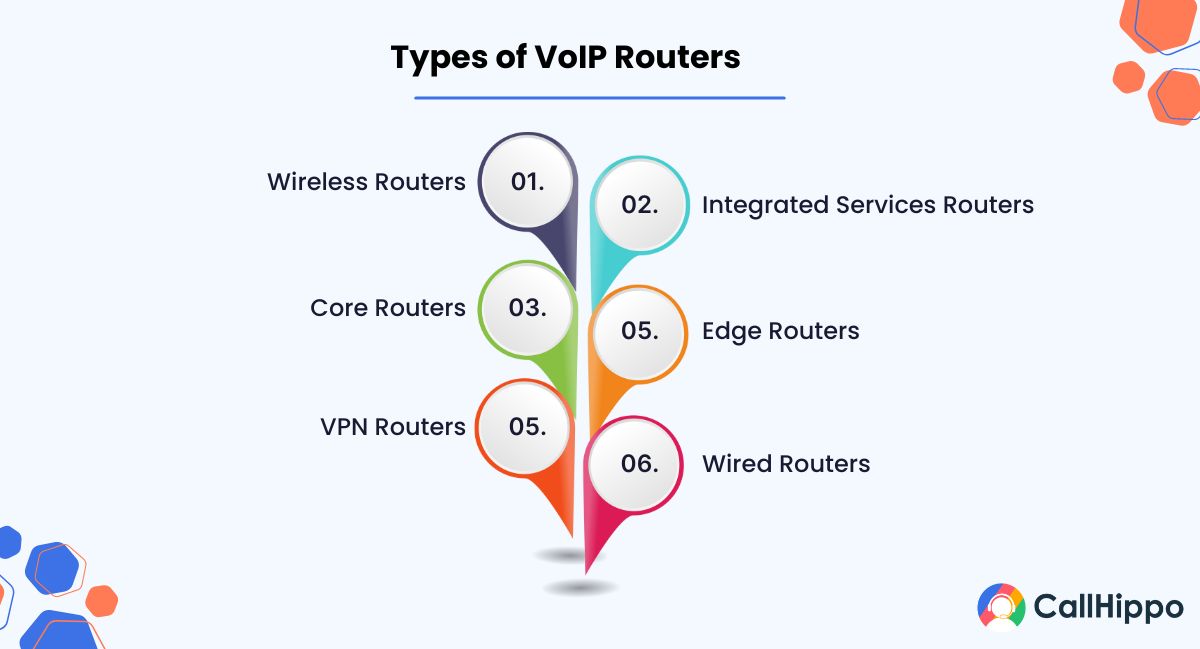
1. Wireless Routers
Wireless routers integrate routing capabilities with wireless access points, facilitating device connection to the network without the need for physical cables. In the VoIP realm, wireless routers offer the convenience of mobility, enabling VoIP phones or softphones to communicate wirelessly. However, maintaining consistent and reliable voice quality over
Wi-Fi can be a challenge due to potential interference and signal strength issues. Advanced wireless routers incorporate technologies like Wi-Fi Multimedia (WMM) and traffic shaping to prioritize voice traffic and mitigate potential disruptions.
2. Integrated Services Routers
Integrated Services Routers (ISRs) combine various networking features, including routing, switching, firewall, VPN, and VoIP capabilities, into a single device. They are versatile solutions that cater to the comprehensive communication needs of businesses. ISRs often support advanced VoIP features such as call processing, voice gateway functionality, and SIP trunking, making them well-suited for organizations seeking an all-in-one networking solution.
3. Core Routers
Situated at the core of expansive networks, core routers play a pivotal role by directing data between various subnets and networks within an organization. While they may not directly handle VoIP traffic at the user level, core routers indirectly impact VoIP performance by ensuring efficient and low-latency data transmission across the network. Core routers focus on high-speed data forwarding and routing, contributing to overall network stability and quality, which indirectly benefits VoIP communication.
4. Edge Routers
Edge routers sit at the network’s edge, linking it with external networks like the internet or other interconnected systems. In VoIP setups, edge routers manage the traffic entering and exiting the local network. They often employ Network Address Translation (NAT) to allow multiple devices on a LAN to share a single public IP address. Edge routers play a critical role in securing the network by implementing firewall rules, intrusion detection, and access control mechanisms to protect against unauthorized access and threats.
5. VPN Routers
VPN (Virtual Private Network) routers enhance VoIP communication security and privacy with an added layer of protection. They establish encrypted tunnels between remote locations or devices, allowing secure data transmission over potentially untrusted networks like the Internet. VPN routers are particularly useful for remote workers or branch offices connecting to the main office’s VoIP network, providing a secure VPN for remote access. By encrypting VoIP traffic, VPN routers protect sensitive voice data from interception and eavesdropping, ensuring confidentiality and integrity.
6. Wired Routers
Wired routers are the foundation of most network setups. They facilitate communication between devices on a local area network (LAN) and connect the LAN to the wider internet. In the context of VoIP, wired routers play a pivotal role in transmitting voice packets between VoIP phones or devices and the VoIP service provider. These routers ensure that voice data is efficiently managed, prioritized, and routed across the network. They often come equipped with Quality of Service (QoS) features to prioritize voice traffic over other types of data, ensuring clear and uninterrupted voice calls.
Features to Look For In A VoIP Router
When selecting a VoIP router for your business, there are several essential features to consider to ensure a seamless and high-quality voice communication experience. Let’s delve into each feature in depth:
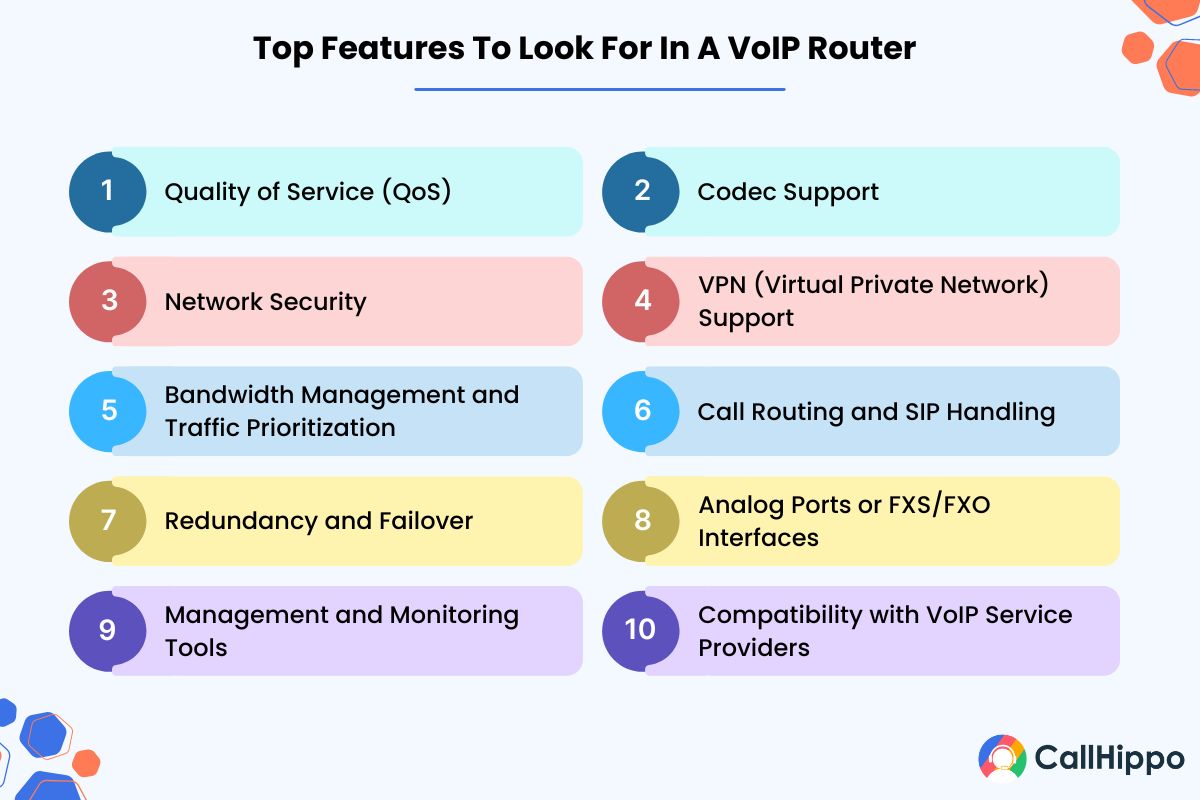
1. Quality of Service (QoS)
QoS is a critical feature that prioritizes voice traffic over other types of data on the network. This ensures that VoIP packets are given higher priority to minimize latency and ensure clear and uninterrupted voice calls. QoS techniques like Traffic Shaping and Bandwidth Reservation ensure adequate network resources for VoIP, preventing call quality decline during high network activity.
2. Codec Support
Codecs are algorithms that compress and decompress audio data for efficient transmission over the network. A VoIP router with a wide range of codec support allows compatibility with different VoIP devices and ensures optimal voice quality. Common codecs include G.711 (high-quality but higher bandwidth) and G.729 (lower bandwidth with acceptable quality).
3. Network Security
Robust security features are vital to protect your VoIP communication from threats. Look for features such as Stateful Packet Inspection (SPI) firewall, Intrusion Detection System (IDS), Intrusion Prevention System (IPS), and Virtual LAN (VLAN) support. These features help safeguard against unauthorized access, eavesdropping, and malicious attacks on your VoIP network.
4. VPN (Virtual Private Network) Support
VPN support ensures secure communication over untrusted networks like the Internet. It encrypts VoIP traffic, preventing interception and unauthorized access. A router with built-in VPN capabilities allows remote workers or branch offices to connect securely to the main VoIP network, ensuring privacy and confidentiality.
5. Bandwidth Management and Traffic Prioritization
In addition to QoS, bandwidth management and traffic prioritization features allow you to allocate specific amounts of bandwidth to different types of traffic. This prevents voice calls from being affected by other data-intensive activities on the network, ensuring consistent call quality.
6. Call Routing and SIP Handling
A VoIP router should handle Session Initiation Protocol (SIP) for call setup, negotiation, and tear-down. Look for features like SIP ALG (Application Layer Gateway) to ensure compatibility with SIP-based devices and smooth call routing between different networks.
7. Redundancy and Failover
Redundancy and failover measures guarantee uninterrupted VoIP service, even if network failures occur. Dual WAN ports with automatic failover can switch to a backup connection if the primary connection fails, minimizing downtime and call disruptions.
8. Analog Ports or FXS/FXO Interfaces
If you need to integrate traditional analog devices, such as analog phones or fax machines, into your VoIP network, look for routers with FXS (Foreign Exchange Station) or FXO (Foreign Exchange Office) ports. These interfaces enable seamless connectivity between analog and VoIP devices.
9. Management and Monitoring Tools
Remote management and monitoring tools allow you to configure, monitor, and troubleshoot your VoIP network efficiently. Look for features like remote access, network performance testing, web-based configuration interfaces, and diagnostic tools that help ensure optimal network performance and call quality.
10. Compatibility with VoIP Service Providers
Some routers are optimized for specific VoIP service providers and may offer features like automatic configuration and easier setup with certain providers. Verify that the selected router aligns with your preferred VoIP service to simplify deployment.
Top 10 VoIP Routers For Your Business
Discover the pinnacle of VoIP router technology in 2023 with our curated list of the finest options for bolstering your business communication.
1. Linksys EA8300 Max-Stream
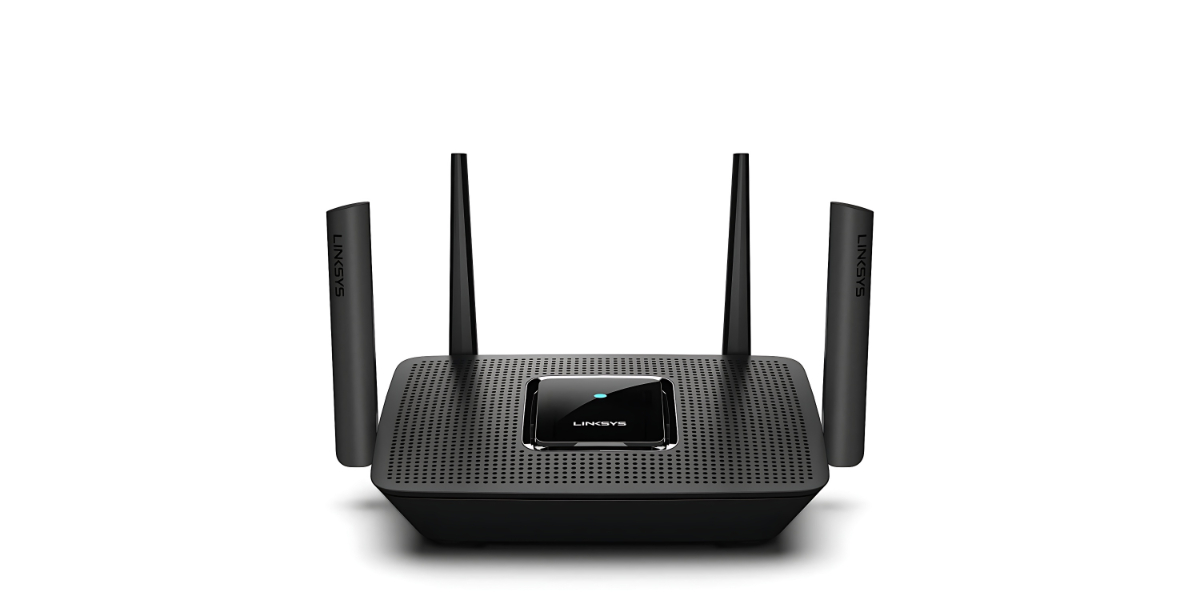
The Linksys EA8300 Max-Stream is a versatile router equipped with Tri-Band technology, delivering efficient data distribution and minimizing congestion for optimal VoIP performance. Its advanced QoS ensures smooth voice calls by prioritizing VoIP traffic. With Beamforming technology, the router enhances signal strength and coverage, which is ideal for maintaining clear voice communication across a network. The user-friendly interface simplifies setup and management, making it a suitable choice for businesses seeking reliable VoIP capabilities.
Features
- Fast tri-band wireless speeds up to 2.2 Gbps
- Powerful quad-core processor
- MU-MIMO technology
Less Than 3 Minutes
- 1Buy Numbers
- 2Add Users
- 3Start Calling
- 4Track Calls

2. TP-Link Archer VR2800

The TP-Link Archer VR2800 features dual-band Wi-Fi and MU-MIMO technology, providing seamless VoIP and data transmission. Adaptive QoS prioritizes voice traffic, guaranteeing excellent call quality. With integrated VPN support, remote VoIP connections remain secure. Its Gigabit Ethernet ports ensure high-speed connectivity for VoIP devices, while its robust features make it a versatile option for businesses aiming for reliable VoIP communication.
Features
- Fast dual-band wireless speeds up to 2167 Mbps
- Powerful dual-core processor
- Beamforming technology
3. ASUS RT-AC68U
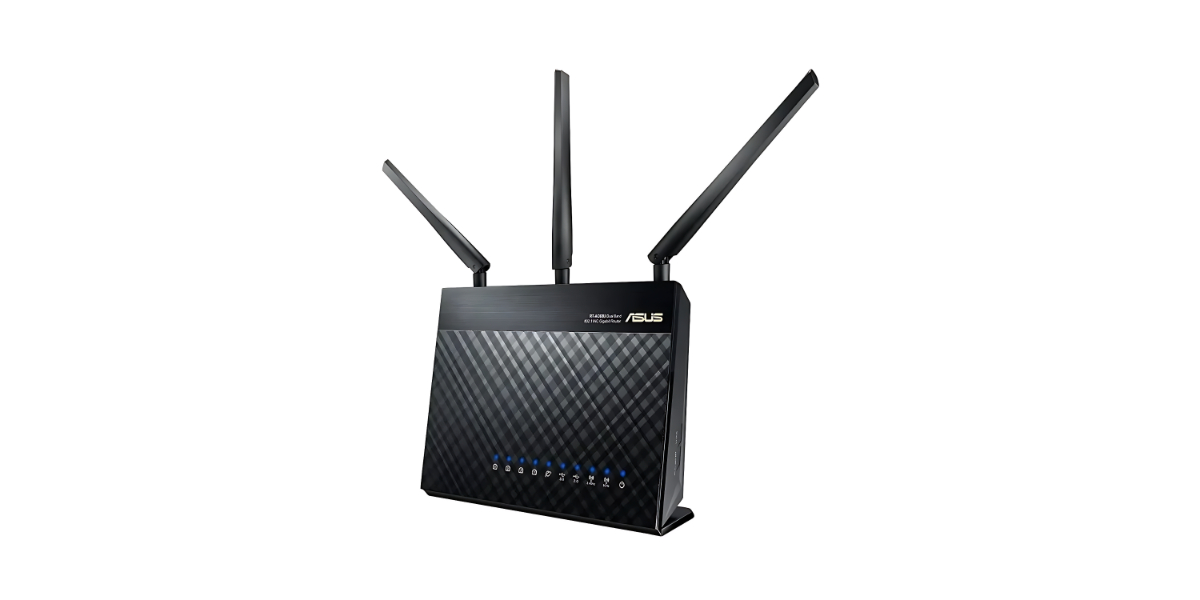
The ASUS RT-AC68U boasts dual-band Wi-Fi with AiRadar technology, enhancing coverage and stability for VoIP communication. Adaptive QoS prioritize voice traffic over other data, ensuring optimal call quality. Its AiProtection security features safeguard VoIP communication, while AiMesh compatibility offers seamless Wi-Fi network expansion. With a user-friendly interface, this router provides an excellent balance of performance and ease of use.
Features
- Fast dual-band wireless speeds up to 1900 Mbps
- Powerful dual-core processor
- AiProtection Pro with Trend Micro
- USB 3.0 port
4. Netgear Nighthawk X10
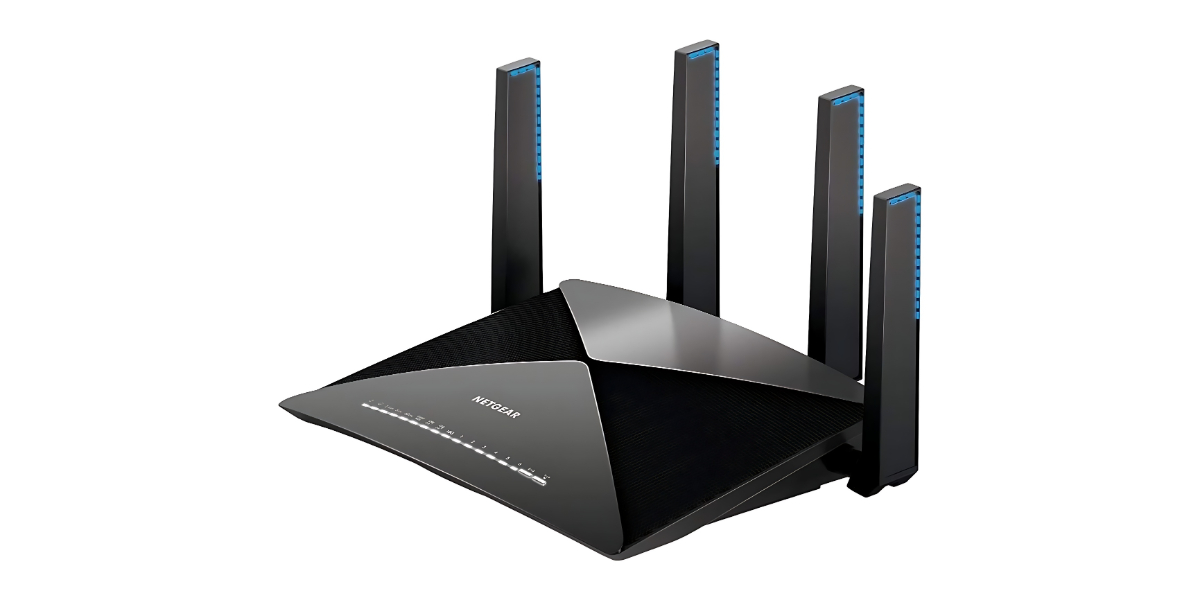
The Netgear Nighthawk X10 excels with Quad-Stream Wi-Fi and MU-MIMO, ensuring ample bandwidth for VoIP calls and data. Its dynamic QoS optimizes VoIP traffic in real time, maintaining consistent call quality. The router’s 10G LAN port provides lightning-fast wired connections, complementing its powerful wireless capabilities. Equipped with Plex Media Server, it offers versatility beyond VoIP, making it suitable for multimedia-rich environments.
Features
- Wireless speeds up to 7.2 Gbps
- Quad-core processor
- MU-MIMO technology
5. SonicWall TZ270
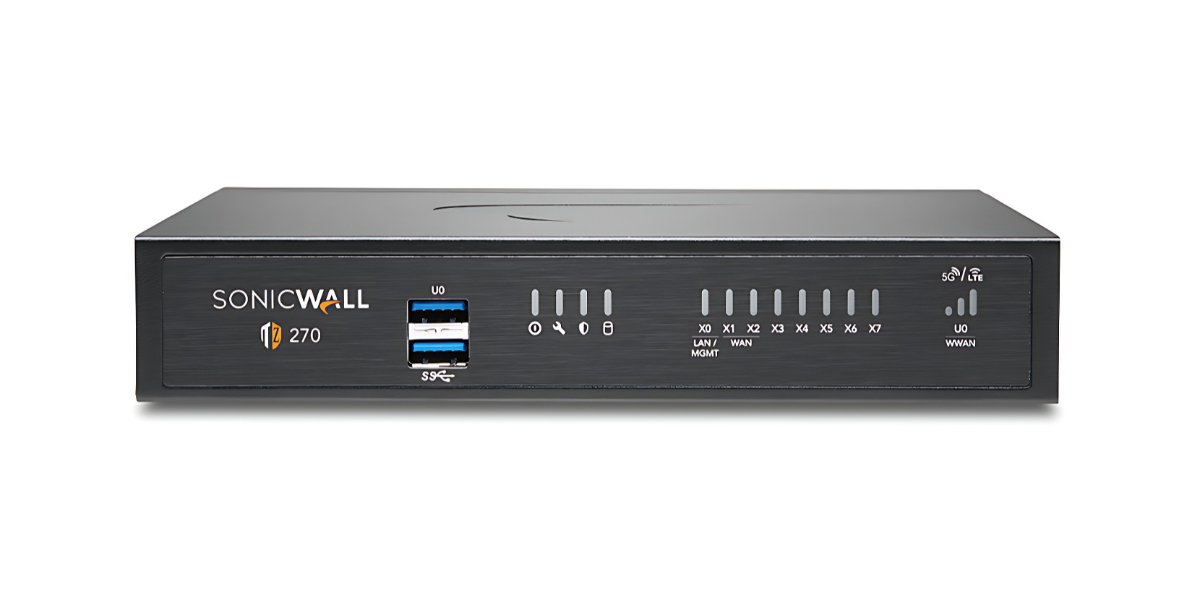
The SonicWall TZ270 emphasizes security with deep packet inspection, intrusion prevention, and content filtering, ensuring secure VoIP traffic. Its application intelligence and control features manage bandwidth effectively for VoIP calls. VPN support enhances remote VoIP connections, while the compact design and robust security features make it an asset for businesses prioritizing both VoIP communication and network protection.
Features
- Real-time deep memory inspection (RTDMI™)
- Multi-core, parallel-processing hardware
- Gigabit and multi-gigabit Ethernet interfaces
6. Cisco RV320
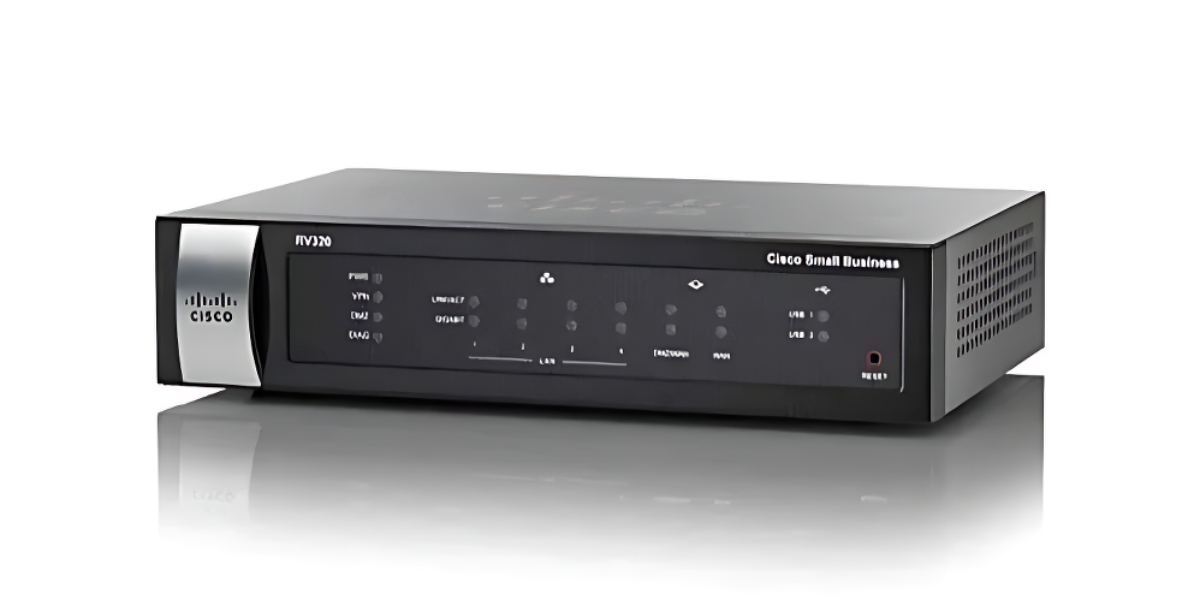
The Cisco RV320 offers Dual WAN capabilities for redundancy and load balancing, enhancing VoIP reliability. Its firewall features, including SPI and DoS protection, safeguard VoIP traffic from threats. With user-friendly configuration and management, this router is well-suited for small businesses seeking solid VoIP performance and security.
Features
- Dual Gigabit Ethernet WAN ports
- Dual USB ports
- SSL VPN and site-to-site VPN
- Stateful packet inspection (SPI) firewall and hardware encryption
7. ZyXEL USG 4000
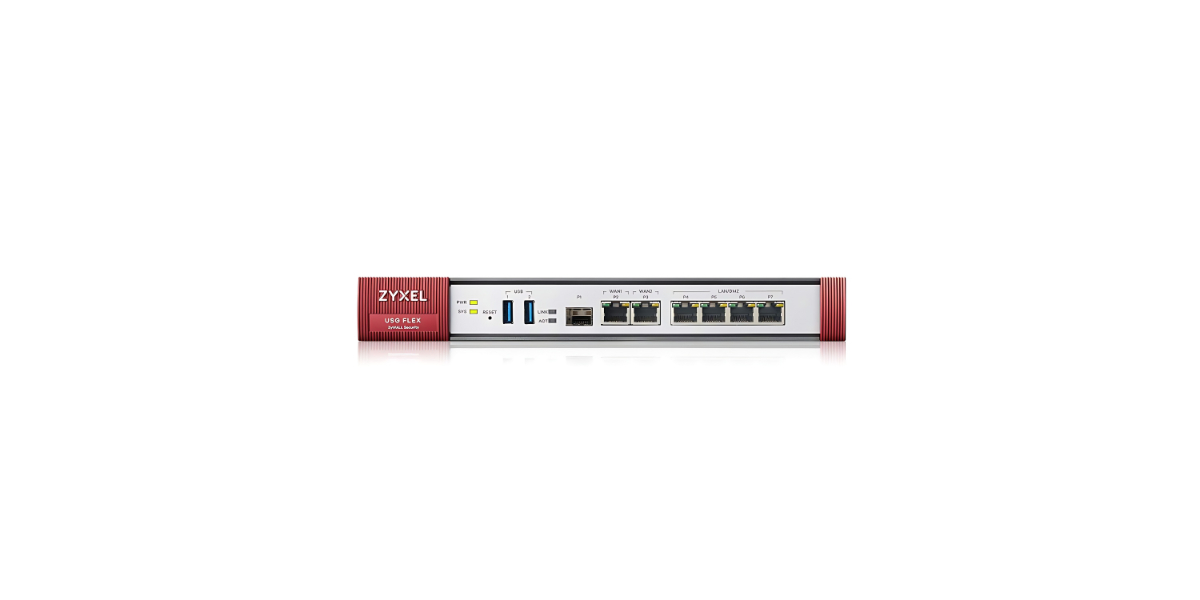
The ZyXEL USG 4000 is an enterprise-grade router known for its robust security features, including UTM (Unified Threat Management) and deep packet inspection, ensuring secure VoIP communication. Its extensive QoS settings provide precise control over VoIP prioritization. Designed for scalability and high-performance, it’s an excellent choice for large VoIP deployments requiring top-tier security.
Features
- Stream-based scan technology without file size limitation
- IP reputation filter
- Cloud-based database
- Pv6 address support
- Supports 10 cyber threat categories
8. FortiGate 60E
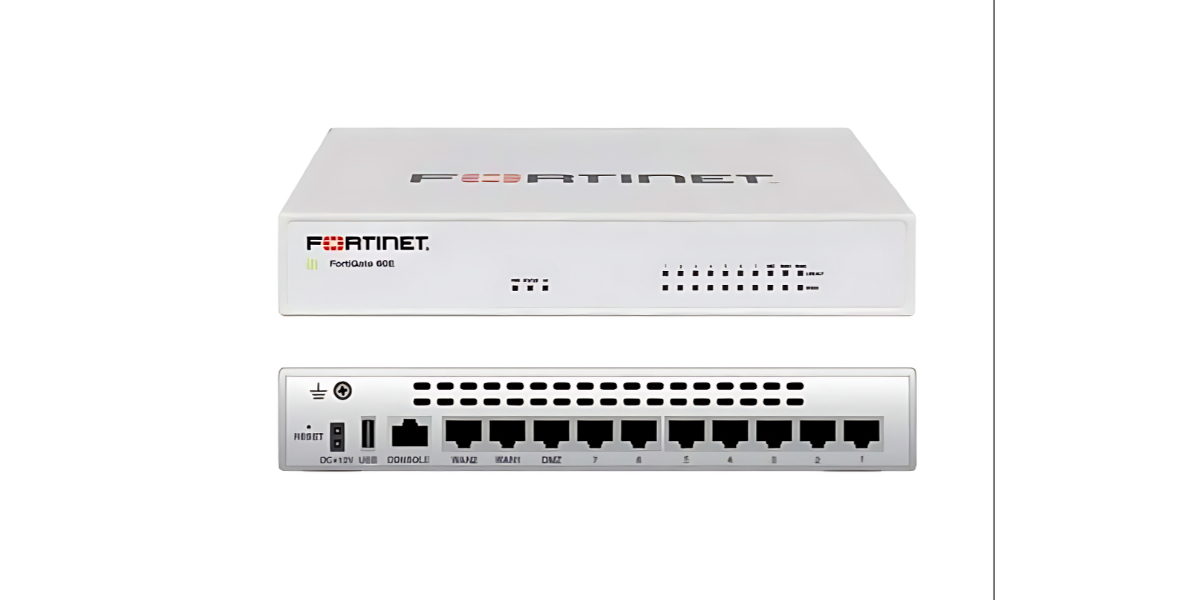
The FortiGate 60E focuses on security, offering features like firewall, VPN, and intrusion prevention to protect VoIP traffic. Its traffic shaping and bandwidth management capabilities prioritize VoIP, and centralized management simplifies configuration. The router’s security-oriented approach makes it suitable for businesses prioritizing VoIP communication alongside robust network protection.
Features
- USB port
- MTBF (Mean Time Between Failure)
- Built-in dual-band, dual-stream access point with internal antennas
- SPU hardware acceleration
9. WatchGuard Firebox T35
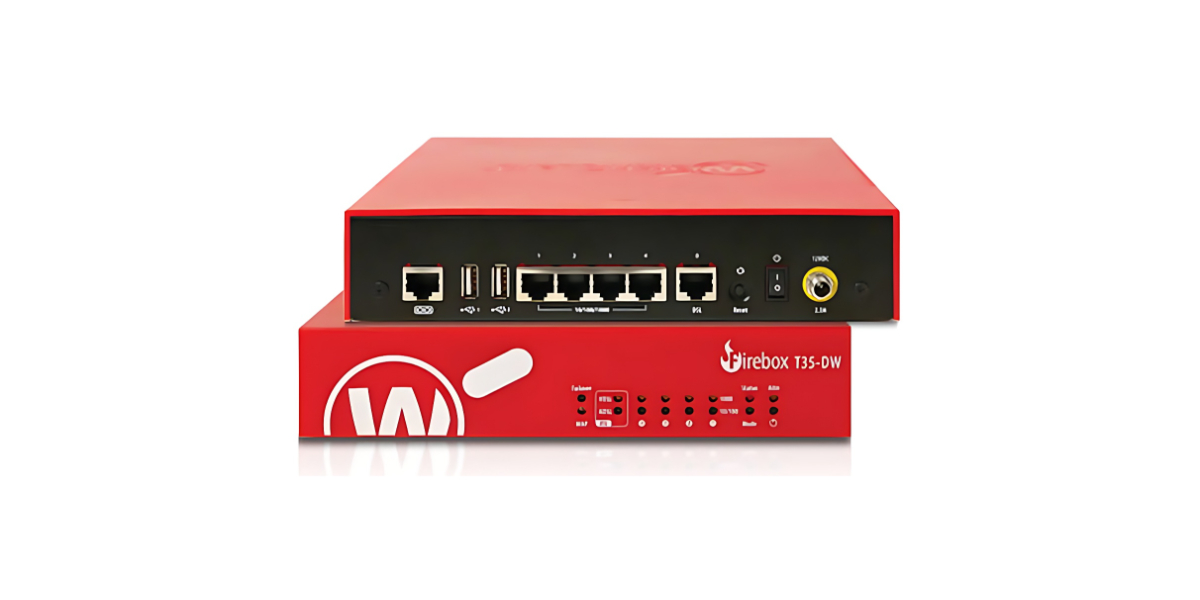
The WatchGuard Firebox T35 emphasizes security with advanced threat protection and content filtering, ensuring secure VoIP traffic. Its Traffic Management capabilities efficiently allocate bandwidth for VoIP calls. The router’s intuitive interface and centralized management enhance ease of use, catering to businesses seeking a balanced solution between VoIP performance and security.
Features
- Integrated DSL modem and is suitable for connections with up to 200 Mbps
- Dual-band 802.11ac technology
- WatchGuard Firebox appliances
- Built-in wireless guest services
10. ARRIS Surfboard SB8200 DOCSIS 3.1
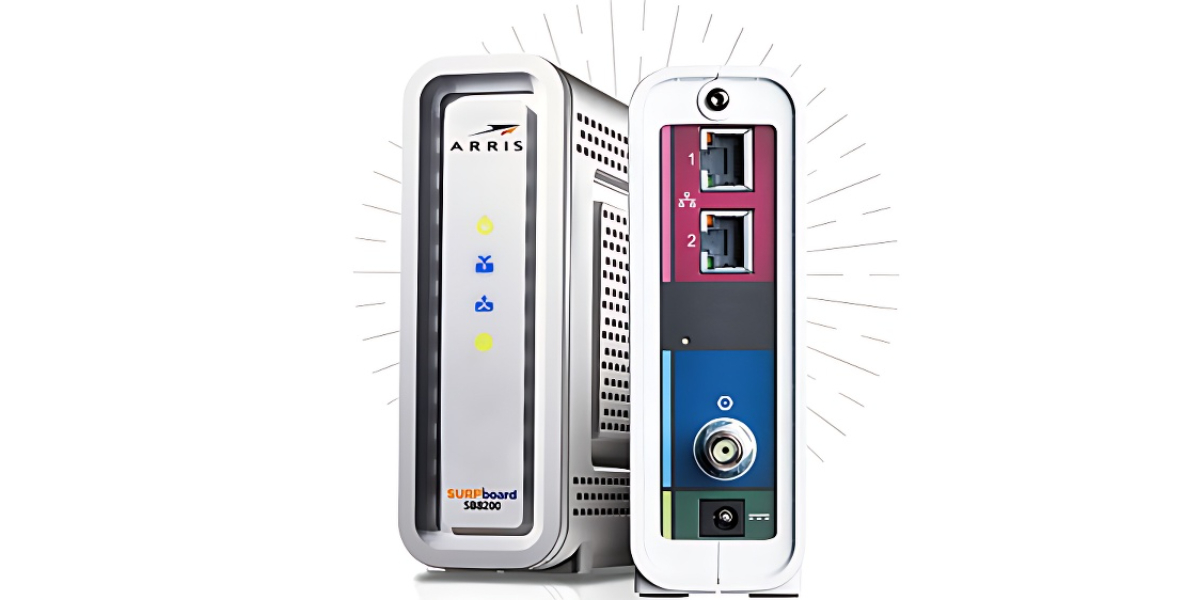
The ARRIS Surfboard SB8200, while not a traditional router, stands out with DOCSIS 3.1 technology, providing high bandwidth for VoIP calls and data over cable networks. Its compatibility with various VoIP devices and service providers adds versatility to cable-based VoIP setups, making it a valuable asset for businesses seeking reliable communication over cable connections.
Features
- High-speed cable modem
- Supports speeds up to 2 Gbps
- DOCSIS 3.1 technology
Don’t Miss To Read: PSTN vs. VoIP: What To Choose?
Conclusion
In conclusion, the selection of the right VoIP router holds paramount importance in shaping the success of your business’s communication infrastructure. The 10 routers highlighted in this guide offer a spectrum of capabilities, from advanced QoS and codec support to robust security features and intuitive management interfaces.
Whether you seek seamless remote collaboration, crystal-clear voice calls, or enhanced network protection, these routers provide tailored solutions to elevate your business’s communication experience. By making an informed choice based on your unique requirements, you can embark on a journey of efficient, secure, and high-quality VoIP communication, propelling your business toward a future of enhanced connectivity and collaboration.
FAQs
1) Which router supports VoIP?
VoIP is supported by a wide range of routers available in the market. When choosing a router for VoIP, look for features such as Quality of Service (QoS) to prioritize voice traffic, codec support, security features like firewall and VPN, and compatibility with SIP (Session Initiation Protocol) for call routing. Business-grade routers often offer more advanced VoIP capabilities to ensure optimal call quality and performance.
2) Do you need a special router for VoIP?
While a “special” router isn’t always required, choosing a router with specific features optimized for VoIP can significantly enhance your VoIP experience. Features like QoS, codec support, and traffic prioritization ensure smooth and high-quality voice calls. Business VoIP setups, in particular, may benefit from routers with advanced VoIP capabilities, such as SIP handling and call routing features.
3) Can I just plug a VoIP phone into my router?
Yes, you can plug a VoIP phone directly into your router if it supports Power over Ethernet (PoE) and has Ethernet ports. Many modern VoIP phones come with built-in Ethernet ports, allowing you to connect them directly to your router using an Ethernet cable. However, to ensure optimal performance and call quality, it’s recommended to configure the router with appropriate QoS settings for VoIP traffic.
4) How do I enable VoIP on my router?
To enable VoIP on your router:
- Check router compatibility for VoIP features.
- Configure QoS settings to prioritize VoIP traffic.
- Open necessary ports for VoIP traffic (if required).
- Configure SIP settings for call routing and signaling.
- Connect VoIP devices via Ethernet.
- Test calls and monitor call quality.
5) What are the best commercial routers?
The Cisco RV340, Netgear Nighthawk X10, and Ubiquiti EdgeRouter are among the top commercial routers. These routers are ideal for small and medium-sized businesses as they offer strong security, excellent performance, and scalability.
6) What are the best enterprise routers?
The Huawei AR Series, Juniper MX Series, and Cisco ISR 4000 are some of the best business routers available. These routers meet the demanding networking requirements of major companies by providing high-speed connectivity, modern security features, and seamless integration.
7) How to set up voip on a router?
Connecting your VoIP device to the router, enabling Quality of Service (QoS) settings for VoIP traffic, configuring port forwarding for SIP, and making sure your internet connection can support VoIP requirements are the steps involved in setting up VoIP on a router.
Don’t Miss To Watch: VoIP Texting – Benefits & Top Providers

Subscribe to our newsletter & never miss our latest news and promotions.









